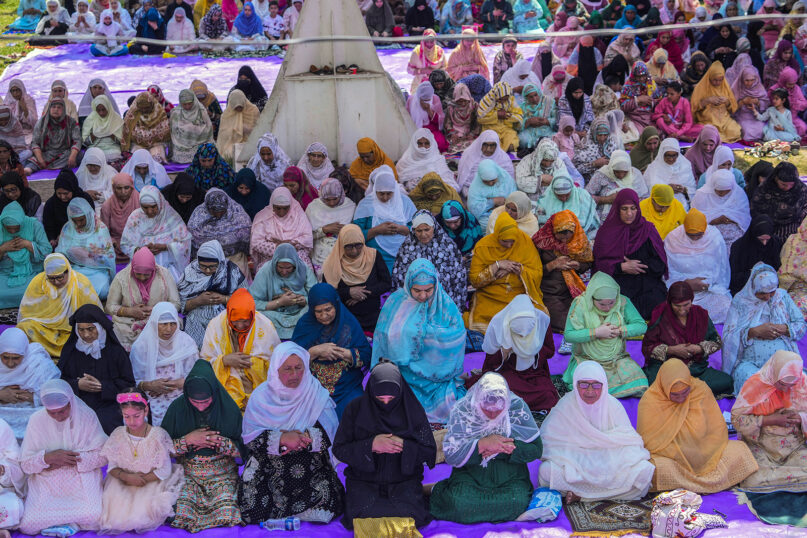
(RNS) — Words fail to express the sorrow felt for those who suddenly lost their lives in the Air India plane crash. We express our sincerest condolences to the families who lost loved ones from this tragic accident.
During this period of mourning, many will turn to their faith to find comfort by attending services at houses of worship. The importance to allow individuals to practice their faith, either alone or in community with others and in public or private, is reinforced by such tragedy.
India also continues to navigate the aftermath of the recent attacks in Kashmir, which highlighted ongoing threats to religious communities, including houses of worship. Both India and Pakistan violate Article 18 of the Universal Declaration of Human Rights — the guarantee of religious freedom — within their own borders, then use each other’s violations to justify continued animosity.
We must note that until religious freedom makes significant progress in both countries, tensions will continue that could again threaten mushroom clouds.
This was demonstrated in the recent military strikes on religious sites in the disputed Kashmir region. The strikes, in Pakistan-administered territory, followed a horrific and deadly assault in April targeting Hindu tourists in Indian-controlled Kashmir. Mosques across Kashmir closed on May 5, citing fears of attack, and on May 7, Indian missile strikes reportedly damaged four mosques in Pakistan and Kashmir. Another Indian missile strike, on a Bahawalpur mosque, killed 13 people. In return, Pakistan military forces shelled a Catholic school and convent in Poonch, killing three students.
One congregation member in Muzaffarabad, the capital of Pakistan-administered Kashmir, said, “It was a normal street mosque where we prayed five times a day.” Imagine, your place of prayer destroyed by foreign missiles. It is frightening and shocking.
The devastating impacts of these attacks — both terrorist and military — extend far beyond those directly affected by the violence. Attacks on individuals due to their religious identity create an obvious violation of one’s right to freedom of religion or belief, and too often both India and Pakistan tolerate mob violence against religious minorities. But assaults on religious sites also violate this fundamental freedom, as they aim to destroy the place of worship precisely for its religious significance, cause harm to a distinct religious group and instill fear in worshippers.
We serve as commissioners on the U.S. Commission on International Religious Freedom, a legislative branch agency that monitors religious freedom abroad. USCIRF has urged greater protection of religious sites during armed conflict, pursuant to international humanitarian law. Except in very narrow circumstances, houses of worship and religious sites are sacrosanct and are not to be targeted for destruction or incur incidental damage during armed conflict.
In our 2025 annual report, we recommended that Congress allocate funding to protect houses of worship where they are under threat. Such funding could support training programs that equip local officials and communities with tools and best practices to better protect places of worship.
Sadly, the attacks on Kashmir’s houses of worship were not surprising given the level of violence, discrimination and harassment targeting Muslims in India. We have urged the State Department to designate India as a “country of particular concern,” or CPC, for engaging in and tolerating systematic, ongoing and egregious religious freedom violations.
During 2024, violent attacks against religious minorities and places of worship persisted. The Indian government produced propaganda to undermine sentiment among Indian Hindus for Indian Muslims, Christians, Sikhs and other religious minorities, fueling these bloody attacks. The ever-growing roster of discriminatory laws and policies, including state-level anti-conversion and cow slaughter laws, further emboldened perpetrators of violence.
Pakistan too has an abysmal record on religious freedom, and USCIRF recommended the country continue to be designated as a CPC. In 2024, religious minority communities — particularly Christians, Hindus and Shiite and Ahmadiyya Muslims — faced widespread persecution, including prosecutions under Pakistan’s unjust blasphemy law. In one brutal example, a 70-year-old Christian man was lynched last May after accusations that he desecrated a Quran. Attacks on sacred sites in these communities occur with impunity, and there is an alarming pattern of forced conversions among Christian and Hindu women and girls.
While the U.S. government has never designated India as a CPC, Pakistan has been designated as such since 2018. Designating both Pakistan and India as CPCs this year would signal that the United States does not tolerate violations of religious freedom, which include attacks on houses of worship.
This would be one way for the U.S. government to draw a line in the sand and define a necessary condition for lasting peace. Failure to take this simple, impactful action empowers India and Pakistan to continue down a bloody and unreconcilable road.
(Vicky Hartzler and Stephen Schneck serve on the U.S. Commission on International Religious Freedom, and Hartzler is chair of the commission. The views expressed in this column do not necessarily represent those of Religion News Service.)







